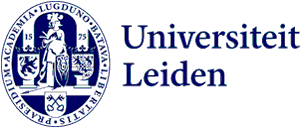
Leaving Afghanistan: ‘Tensions with Russia and China are rising further’
After an extremely painful conclusion, the Western allies have left Afghanistan and the Taliban have regained supremacy. How will Afghanistan move forward, and what does the departure mean for global relations? Rob de Wijk, emeritus Professor of International Relations and Security, analyses the failure of the reconstruction mission and its consequences.
First of all, after almost 20 years of training and advising and an injection of hundreds of billions of dollars, why has it not been possible to build a stable democracy in Afghanistan?
‘You can’t catapult a country that is still in the Middle Ages, as it were, 500 years into the future with a few simple institutional proposals such as a parliament and democratic elections. Those are in place, but they don’t fit into Afghan history and traditions that include tribes and warlords vying for power. It will take many decades and perhaps more than a century to bring about profound change. It’s a pipe dream to want to force it so quickly. The Western world had a clear vision of how Afghanistan should develop and packaged this in terms of nation building. But that wishful thinking completely ignored the history, culture and ways in which Afghanistan, a country of more than 38 million people, actually functions.’

Is that the reason why other reconstruction missions such as those in Iraq and Somalia have also been unsuccessful?
‘Yes. We Western countries always start from our own assumptions and are not prepared to look at the other side. You can’t reason with terrorists, so they say, which means there’s never been a good conversation with the Taliban in all those years. It was only two years ago that the Americans under Trump started negotiating an exit strategy. The Taliban cooperated and the Americans released 5,000 fighters in exchange for good behaviour. But the US failed to present the agreement with the Taliban to Afghan President Ghani and include him in the peace negotiations. So nothing changes and the Taliban have received an incentive award.’
Western countries always start from their own assumptions and are not prepared to look at the other side
Are the Taliban fighters going to unleash a new reign of terror throughout Afghanistan?
‘From our perspective, yes, but the question is whether it will be felt that way throughout Afghanistan. We’re understandably focused on the people who want to leave the country, but you have to realise that the Taliban are rooted in conservative Afghan society. Their values are shared by a large part of the population, who are mostly war-weary. The areas previously occupied by the Taliban are certainly very conservative, but it’s relatively peaceful there. The Western NGOs that provided humanitarian aid such as medical care have been tolerated there until now. They had to be, and now they certainly have to be. The government has money for only a few more weeks. The Taliban earned money from drug smuggling, but they can’t finance an entire country with that. Excesses will always happen – they are a network organisation – but the central leadership has an interest in maintaining the flow of donor funds from international NGOs, amongst others. Such funds account for about 70% of the Afghan budget.’
What does the near future look like now that IS is also stirring?
‘There are two major dangers: are the local Taliban leaders keeping themselves in check, and what is being done by IS, which has a very strong interest in creating chaos in the country? IS wants to wreak havoc in Afghanistan because that increases its chances of establishing its own caliphate there in the future. So the question is how the Taliban will get IS under control. And will the Taliban government be able to control its fighters, young men who have never experienced anything but war? It’s very difficult to predict how all this will turn out. There are no answers to that yet.’

What does the departure from Afghanistan mean for geopolitical relations?
‘America is no longer the loyal ally it once was, and there is a growing realisation in the EU that we need our own European armed forces. This process had already started under Trump and certainly will not stop with Biden, who won the presidency by the skin of his teeth. Who will come after him? The US left Afghanistan mainly because it wants to spend its money on its own armed forces to better compete with China and Russia. Biden said so recently but, strangely enough, there very little media attention has been paid to it. The American departure is bad news for China, which borders Afghanistan. There is a direct link to the uprising of the Chinese Uighurs, the oppressed Muslim minority living in the border region with Afghanistan. Russia also has a problem if the West is no longer in control of Afghanistan, and Biden knows that. I know people in his administration who think that way. So tensions between the US, China and Russia are rising further. This is the new world order.’
Text Linda van Putten
